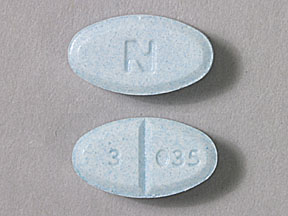
Glyburide Micronized Coupons & Savings Card – Discount Prices from $37.25
Generic for: Glynase
Glyburide is a medication specifically designed to help manage high blood sugar levels in individuals with Type 2 diabetes. It should be used in conjunction with a healthy diet and regular exercise, and it may be combined with other diabetes medications for optimal results. By promoting the release of insulin from the pancreas, Glyburide effectively lowers blood sugar levels. Proper management of blood sugar can help prevent various complications such as kidney damage, vision issues, nerve damage, limb loss, and sexual dysfunction. Additionally, maintaining proper blood sugar levels can reduce the risk of heart attacks and strokes. Glyburide is classified under sulfonylureas, a group of medications that facilitate the release of the body's natural insulin. Always consult your healthcare provider for personalized advice and treatment plans.
Our coupons are free to use. Before paying, show the pharmacist your Glyburide Micronized savings card to get your free discount. Use our filters below to edit the prescription box to match your needs. The Glyburide Micronized prices will update based on your prescription needs. Above our Glyburide Micronized coupons, you can change your location to see pharmacy prices and costs in other areas. We're here to help you buy Glyburide Micronized at the lowest price with our prescription discount card.
My prescription
Edit
3MG, Glyburide Micronized (180 Tablets)
Select pharmacy

CVS
$42.68
COUPON PRICE
Albertsons
$37.25
COUPON PRICE
Walgreens
$43.44
COUPON PRICE
Walmart
$45.36
COUPON PRICEGlyburide Micronized savings card
Show this card to your pharmacist
Albertsons
$37.25
BIN
ID
PCN
GRP
019876
LH03388904
CHIPPO
LHX
Powered by
Glyburide is a medication specifically designed to help manage high blood sugar levels in individuals with Type 2 diabetes. It should be used in conjunction with a healthy diet and regular exercise, and it may be combined with other diabetes medications for optimal results. By promoting the release of insulin from the pancreas, Glyburide effectively lowers blood sugar levels. Proper management of blood sugar can help prevent various complications such as kidney damage, vision issues, nerve damage, limb loss, and sexual dysfunction. Additionally, maintaining proper blood sugar levels can reduce the risk of heart attacks and strokes. Glyburide is classified under sulfonylureas, a group of medications that facilitate the release of the body's natural insulin. Always consult your healthcare provider for personalized advice and treatment plans.
Our coupons are free to use. Before paying, show the pharmacist your Glyburide Micronized savings card to get your free discount. Use our filters below to edit the prescription box to match your needs. The Glyburide Micronized prices will update based on your prescription needs. Above our Glyburide Micronized coupons, you can change your location to see pharmacy prices and costs in other areas. We're here to help you buy Glyburide Micronized at the lowest price with our prescription discount card.
More prescriptions for diabetes type 2
coupons from$330.34Save 87%
coupons from$511.43Save 72%
coupons from$24.66Save 44%
coupons from$480.57Save 64%
coupons from$25.03Save 80%
coupons from$52.03Save 72%
coupons from$5.14Save 89%
coupons from$67.09Save 80%
More prescriptions for diabetes type 2
Cycloset Save 87%coupons from $330.34
Symlinpen 60 Save 72%coupons from $511.43
Glipizide Xl Save 44%coupons from $24.66
Pioglitazone-glimepiride Save 64%coupons from $480.57
Humalog Kwikpen Save 80%coupons from $25.03
Novolin N Save 72%coupons from $52.03
Glyburide-metformin Save 89%coupons from $5.14
Novolog Mix 70/30 Save 80%coupons from $67.09
Glyburide Micronized dosage forms
Use our Glyburide Micronized 1.5MG coupon with prices from $1.01 for 30 Tablets. You can also use our Glyburide Micronized 1.5MG coupon with prices from $11.26 for 90 Tablets. We have a Glyburide Micronized 1.5MG coupon with prices from $14.62 for 100 Tablets. You can use our Glyburide Micronized 3MG coupon with prices from $37.25 for 180 Tablets.
Dosage Quantity Price from Per unit 1.5MG 30 Tablets $1.01 $0.03 1.5MG 90 Tablets $11.26 $0.13 1.5MG 100 Tablets $14.62 $0.15 3MG 180 Tablets $37.25 $0.21 3MG 100 Tablets $22.81 $0.23 3MG 500 Tablets $71.80 $0.14 6MG 60 Tablets $23.76 $0.40 6MG 100 Tablets $35.40 $0.35 6MG 180 Tablets $42.68 $0.24
| Dosage | Quantity | Price from | Per unit |
|---|---|---|---|
| 1.5MG | 30 Tablets | $1.01 | $0.03 |
| 1.5MG | 90 Tablets | $11.26 | $0.13 |
| 1.5MG | 100 Tablets | $14.62 | $0.15 |
| 3MG | 180 Tablets | $37.25 | $0.21 |
| 3MG | 100 Tablets | $22.81 | $0.23 |
| 3MG | 500 Tablets | $71.80 | $0.14 |
| 6MG | 60 Tablets | $23.76 | $0.40 |
| 6MG | 100 Tablets | $35.40 | $0.35 |
| 6MG | 180 Tablets | $42.68 | $0.24 |
